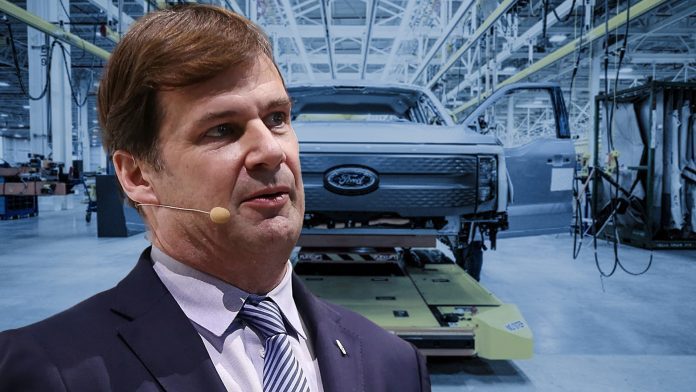Ford Motor Co. announced that a factory closure stemming from a battery-related fire would last until March 13, over a month after production was halted.
The fire broke at the Dearborn, Michigan plant’s holding lot on Feb. 4. A subsequent investigation by Ford discovered that a battery issue had ignited one of the F-150 Lightning pickups awaiting a quality inspection, damaging two other vehicles in the process. Later, the automaker revealed that the problem originated from a different Ford-owned plant in the same state, operated by its electric vehicle battery partner SK On. At present, none of the pickups in customer hands are believed to be affected by the issue.
Speaking to the Detroit Free Press, Ford spokesperson Emma Bergg said that the automaker “will continue to apply our learnings and work with SK On’s team to ensure we continue delivering high-quality battery packs – down to the battery cells.” When the closed factory resumes operations on March 13, it will have been over five weeks since the initial fire.
Although electric vehicles remain a comparatively small market, they represent a large portion of automaker ambitions for the future. Over the last few years, brands have rushed to refit their factories with the tools necessary to produce EVs while introducing new models at various price points. In the coming decades, the industry hopes to phase out the internal combustion engine entirely, although some doubt remains over the exact timeline. Ford has carved an early name for itself in the electrification space, mainly due to the success of the F-150 Lightning and Mustang Mach-E. The former was the best-selling electric pickup in 2022, while the latter came in third place overall.




